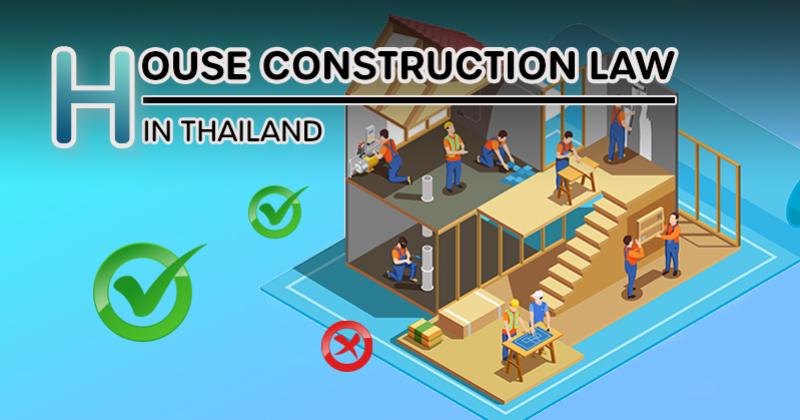Login/Register

Created : 22 Aug 2023
Updated : 23 Aug 2023
How To Set Up A Thai Limited Company
As many people nowadays are turning to start their own businesses, these ventures could range from small family enterprises to companies that expand and grow over time. Once you've decided to establish your own company, "company registration" becomes a crucial step that cannot be avoided. Here's a simple guide to the process:
Company registration can be classified into two main types based on the individuals who will collectively establish the company:
1.Partnership Registration or Sole Proprietorship (บุคคลธรรมดา): This type of registration is suitable for small businesses and is owned by one or more individuals who are personally liable for the company's debts and obligations. In a partnership, two or more individuals can come together to operate the business jointly and share its profits and liabilities.
2.Juristic Person Registration (นิติบุคคล): This category refers to companies that have a separate legal identity from their owners. Such companies can own assets, engage in contracts, and be held accountable for their own debts and obligations. This category includes various forms such as private limited companies, public limited companies, and limited partnerships.
For those wondering whether it's possible to register a company with only two individuals, the answer is yes. Generally, registering a partnership can be done with just two people. Furthermore, as of February 7, 2023, the laws have been amended to allow the registration of limited companies with two or more founders. This change was announced by the Department of Business Development.
The process of registering a company typically involves the following steps:
The process of company registration is crucial, particularly as your business expands, especially when your earnings surpass 750,000 Baht. For individuals earning this amount, the tax rate can reach up to 35%, whereas through company registration, the maximum income tax rate is capped at 20% only. This highlights the tax-saving benefits and enhanced business credibility that company registration offers. Contrary to common beliefs, the process of company registration is not as complex as perceived. It requires adequate preparation of documents and adherence to the subsequent steps outlined in the company registration process below.
1.Study Company Registration Information
Before deciding to register a company, it's important to study and understand the necessary information. Learn about the different types of company registration and determine which type aligns best with your business activities. This preparation is crucial to ensure readiness in terms of documentation, company name selection, and other aspects. Company registration can be completed in as little as one day.
2.Prepare Documents for Company Registration
A crucial step in the company registration process is preparing the necessary documents for submission. Other documents related to the company need to be endorsed with a certified signature from any one of the shareholders. As for the identification cards of each shareholder, they can personally sign these documents. The documents must be ready prior to going for a one-day company registration at the Department of Business Development.
Regarding company registration for companies with foreign shareholders, there are two main scenarios to understand:
• The business must obtain a Foreign Business License.
• The company is prohibited from owning land.
• There are limitations on conducting business activities according to the Foreign Business Act.
3.Company name reservation
For choosing an appropriate company name to prevent future issues, it's important to avoid using misleading terms. Do not incorporate the name of the current monarch or members of the royal family, and refrain from using country names, ministry names, department names, or any names associated with government entities.
The process of checking and reserving a company name involves two steps:
You can reserve up to 3 company names. The chosen names must not be duplicates or closely resemble names of existing companies.
4.Registering the Memorandum of Association and Submitting to the Registrar
The process of registering the Memorandum of Association involves submitting a document expressing the intention to establish a company to be further submitted to the registrar. This submission must be made within 30 days after the registrar's signature is affixed to the document.
5.Arranging Share Subscription and Scheduling Shareholders' Meeting
Shareholders need not necessarily be the founders of the company. Each person must hold at least 1 share or more. Once the company's shares are fully subscribed and sold, a letter must be issued to schedule a shareholders' meeting. The meeting should be scheduled at least 7 days after the issuance of the letter.
6.Convene a statutory meeting
A statutory meeting is convened to make all the appointments once the share structure for the company has been defined, the Memorandum of Association and the Articles of Association are approved, the Board of Directors is elected and an Auditor is appointed.
7.Establishing the Company Committee
The subsequent step is to convene a meeting to establish the company committee. This process is carried out to ensure that individuals are designated to collect 25% of the actual share price as share payment, representing the founders of the company. This step is essential for proceeding with the company registration application. The registration application must be filed within 3 months from the date of the committee establishment meeting. Failure to do so within the specified timeframe would require the organization of a new meeting.
8.Payment of Registration Fees for Company Registration
- Certification fee for each document: 40 Baht
- Certification fee for certified copies of the registration application: 50 Baht
- Fee for issuing a certificate of registration: 100 Baht
- Stamp duty fee: 200 Baht
- Company affidavit registration fee: Calculated based on the registered capital, starting from 500 Baht with a minimum payment of 500 Baht and a maximum payment of 25,000 Baht.
- Limited company registration fee based on registered capital: 500 Baht per 100,000 Baht of registered capital, with a minimum payment of 5,000 Baht and a maximum payment of 250,000 Baht.
9. Receiving the Certificate and Registration Confirmation
Arriving at the final step of company registration is the process of receiving the certificate and registration confirmation. These documents are legally significant for conducting your business. When you reach this stage, it indicates that your company has been formally established and the registration process is completed. You can request these documents from the Registrar at the Department of Business Development in the area where your company is located or from the Commercial Affairs Office in your province.
Today, our page is presenting information about Thai Company set up, hoping that it will be beneficial for all of you who come here to read. Additionally, The Property Center page also has many other great articles that you can read. If any of you are looking to find a house or other real estate, you can entrust your property to us for sale. We have clients contacting us every day, and we will professionally handle the work on your behalf. The Property Center warmly welcomes all homeowners. We have a team that posts on various online media platforms and creates advertisements in newspapers and marketplaces. These services are free, and we only charge a commission fee of 3-5%. Please contact us promptly.
Thanks for the information
http://kasikornbank.com/th/kbiz/article/pages/company-registration.aspx
https://wonderfulpackage.com/article/v/1631/

